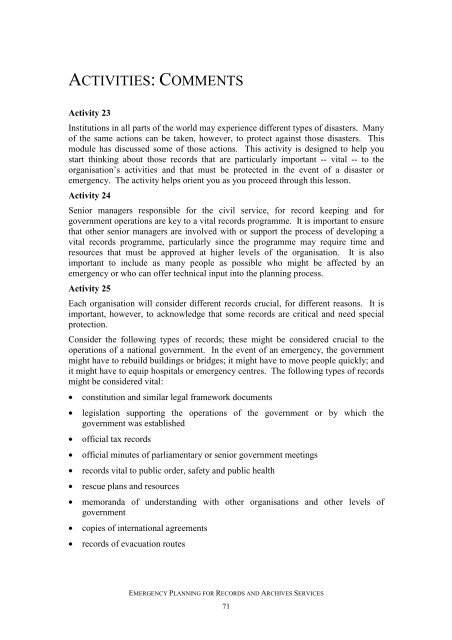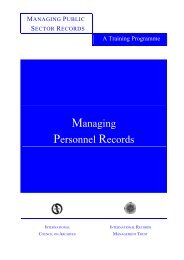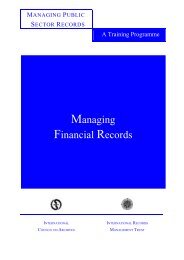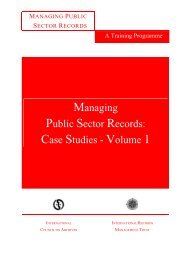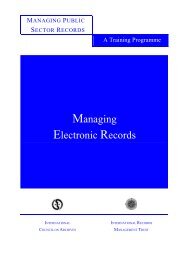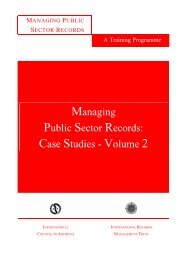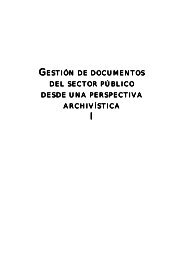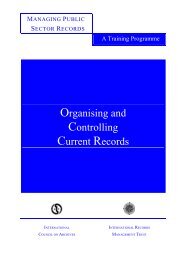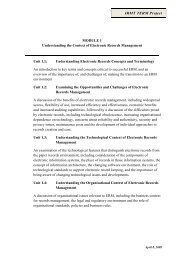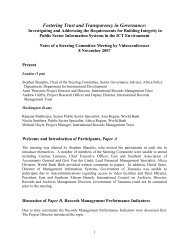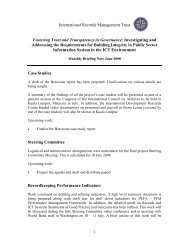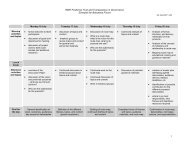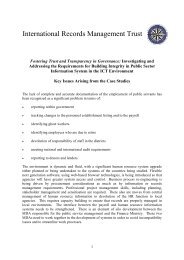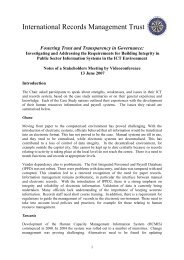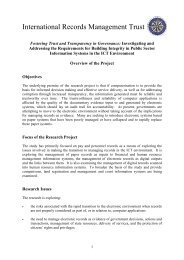disaster planning and control - International Records Management ...
disaster planning and control - International Records Management ...
disaster planning and control - International Records Management ...
Create successful ePaper yourself
Turn your PDF publications into a flip-book with our unique Google optimized e-Paper software.
ACTIVITIES: COMMENTS<br />
Activity 23<br />
Institutions in all parts of the world may experience different types of <strong>disaster</strong>s. Many<br />
of the same actions can be taken, however, to protect against those <strong>disaster</strong>s. This<br />
module has discussed some of those actions. This activity is designed to help you<br />
start thinking about those records that are particularly important -- vital -- to the<br />
organisation’s activities <strong>and</strong> that must be protected in the event of a <strong>disaster</strong> or<br />
emergency. The activity helps orient you as you proceed through this lesson.<br />
Activity 24<br />
Senior managers responsible for the civil service, for record keeping <strong>and</strong> for<br />
government operations are key to a vital records programme. It is important to ensure<br />
that other senior managers are involved with or support the process of developing a<br />
vital records programme, particularly since the programme may require time <strong>and</strong><br />
resources that must be approved at higher levels of the organisation. It is also<br />
important to include as many people as possible who might be affected by an<br />
emergency or who can offer technical input into the <strong>planning</strong> process.<br />
Activity 25<br />
Each organisation will consider different records crucial, for different reasons. It is<br />
important, however, to acknowledge that some records are critical <strong>and</strong> need special<br />
protection.<br />
Consider the following types of records; these might be considered crucial to the<br />
operations of a national government. In the event of an emergency, the government<br />
might have to rebuild buildings or bridges; it might have to move people quickly; <strong>and</strong><br />
it might have to equip hospitals or emergency centres. The following types of records<br />
might be considered vital:<br />
• constitution <strong>and</strong> similar legal framework documents<br />
• legislation supporting the operations of the government or by which the<br />
government was established<br />
• official tax records<br />
• official minutes of parliamentary or senior government meetings<br />
• records vital to public order, safety <strong>and</strong> public health<br />
• rescue plans <strong>and</strong> resources<br />
• memor<strong>and</strong>a of underst<strong>and</strong>ing with other organisations <strong>and</strong> other levels of<br />
government<br />
• copies of international agreements<br />
• records of evacuation routes<br />
EMERGENCY PLANNING FOR RECORDS AND ARCHIVES SERVICES<br />
71


